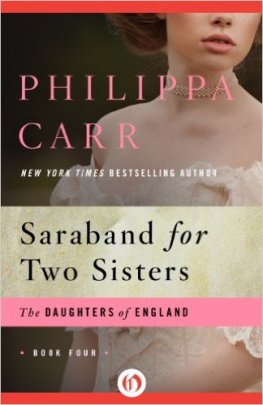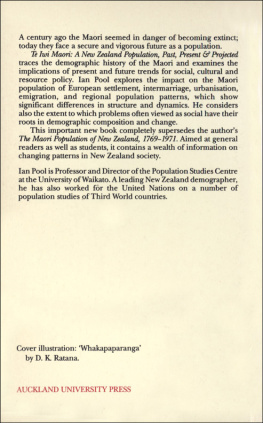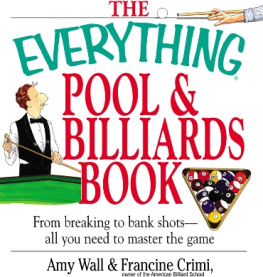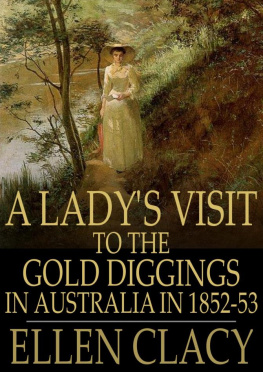Philippa Carr
The pool of St Branok
From the moment Benedict made his dramatic entry into the family circle I was aware of a special attraction between usthat was even before we were involved in the nightmare experience at the Pool of St Branok which was to haunt us in the years ahead, and to have such an effect on our lives thereafter.
My parents, with my young brother Jack and me, were in London to visit the Great Exhibition for it was the year 1851 and I was nine years old. Benedict was fifteen but when one is nine, six years is a great deal.
We had traveled up on the train from Cornwallan adventure in itself to the house in the Westminster square which was ruled over by Uncle Peter and Aunt Amaryllis. They were not really my aunt and uncle, but relationships in our family were very complicated and I always addressed them as such. Uncle Peter had married into the family and dominated it. Aunt Amaryllis was my grandmother's niece, although they were more or less the same age. My mother had always had a grudging admiration for Uncle Peter which made me feel that there was some mystery about him. He was ebullient, charming with a definite hint of wickedness about him which made him fascinating. I had often thought it would be exciting to discover what that meant. Aunt Amaryllis was quite different. She was gentle, kindly and had a rather innocent manner; and she was dearly loved by all. There was nothing secretive about her.
They were constantly entertaining important people at their house. I did not attend these occasions, of course, but even I, at my age, had heard the names of some of these guests.
Their son and daughter had exciting lives of their own. Helena was married to a successful politician, Matthew Hume. He was constantly at the house, even without Helena, and spent a good deal of time in the company of Uncle Peter who took a great interest in his political career. I heard my mother say that Uncle Peter was the eminence grise behind Matthew Hume. Then there was the son, Peter, who had been known as Peterkin since his birth to distinguish him from his father. He and his wife, Frances, ran a Mission in the East End of London, and did much good.
My mother told me a great deal about them. She loved to talk of the past. She had been born in our old house, Cador, which had belonged to the Cadorsons for hundreds of years. My mother had inherited it, so we were not Cadorsons now. My father was Rolf Hanson, who had inherited the house through marriage with my mother; but I think he loved the place even more than the rest of us. I had heard it said that the estates had never been run as well as when Mr. Hanson took charge of them. They had never been so large either, for his contribution to the family estates had been the manor property, which he had brought in when he married my mother.
He was not a Cornishman, but what they called in those parts a "foreigner," which meant that he had been born on the other side of the Tamar in that alien land called England. He was amused by it. We were a very happy family. My father seemed so wise; he understood every little problem that arose and made no fuss about solving it, so it seemed to me. I had never seen him lose his temper. I thought he was the most wonderful person in the world. I used to ride with him round the estate. Jack, who was three years younger than I, was just beginning to do the same. There had been a time when they had thought there would not be another child to follow me and it had been assumed then that one day Cador would be mine. But Jack came.
My mother used to say: "Cador is a wonderful housenot because of its towers and stone walls, but because of the people who lived in it and made it a home. Never, never," she would add, "let yourself believe that houses in themselves are important. It is the people whom you love and who love you who matter. I lost time when I could have been with your father because I thought he cared more for Cador than for me. Then I was lucky.
I learned my lesson in time ... but only after we had missed a few years of life together. So someday Cador will be Jack's, and when the time comes for you to marry you will know that you are wanted for yourself and not because you are the owner of a great house."
She spoke vehemently. My mother was a great talkerunlike my father. I liked to see him sitting there smiling at her indulgently and lovingly while she talked in her vivacious way. I think I resembled her more than I did my fatheralthough I had his looks. I was fair-haired with large dreamy-looking greenish eyes and a wide mouth. I looked as though I should have been serious, thoughtful, but the effect was spoilt by my pert nose which was quite unlike my father's rather noble-looking long one. It gave the contradiction to my seriousness, as it were. My father would touch it sometimes when I said something outrageous, as though my audacity was due to my nose.
I did not realize how lucky I was to have such parents in those days; but that, after all, is the sort of conclusion one comes to later in life.
They were the glorious days of childhood before I was suddenly aware that day at St Branok Pool that the world can be a very frightening place.
I remember those pre-Branok days when the sun seemed to shine perpetually and each day was a week long. I had a governess, Miss Prentiss, who despaired of turning me into the little lady she felt would be worthy of the House of Cador. I ran wild and as my parents did not seem to disapprove of this, what could a governess do? I believe she bemoaned her task to Mrs. Penlock, our cook, and Watson, our butler, when she deigned to go to the kitchen, which was on special occasions only, she being very well aware of the echelons of society which placed her on a higher rung of the social ladder than the domestic staff.
But Mrs. Penlock, who had been at Cador in the days when my mother was a girl, in her stately black bombazine, reigned majestically below stairs and could deal adequately with Miss Prentiss. So could Watsona very dignified gentleman, except when he was making himself agreeable to one of the prettier maids, and he even did that with an air of condescension.
They were happy days. I suppose I was allowed to run wild, as Miss Prentiss said. My mother had had a certain amount of freedom when she was young and wanted me to have the same. There was nothing of the stern parent about her or my father. "Little children should be seen and not heard," said old Mrs. Fenny who lived in one of the cottages near the harbor in East Poldorey, shaking her head, ominously considering the fate of those who were heard as well as seen. She was one of those old women who look for sin and seem to find it. She spent hours looking out of her tiny window onto the quay to where men sat about mending their nets or weighing up their catch, and noting everything that went on. In the summer she would be sitting at her door, so much more convenient for discovering any misdemeanor and passing on any bit of scandal that came her way.
"There will always be people like that," said my mother. "It is because their lives are so dull. They are unhealthily curious about others whose lives seem more eventful, and because they are envious they seize every opportunity to slander them. Let's hope none of us ever get like that."
There were several others like Mrs. Fenny in both East and West Poldorey. The people of the east side regarded those of the west as aliens though slightly less foreign than those who came from the other side of the Tamar. Mrs. Fenny always referred to them as "They West Poldorers" with a certain contempt. I always laughed when I heard her western counterparts speak of the inhabitants of the east side with equal scorn and superiority.
I loved the harbor with the little fishing boats swaying on the tide, secured as they were to the great iron rings which made you watch your step as you ran along. I liked to stand by and watch the men as they worked.







